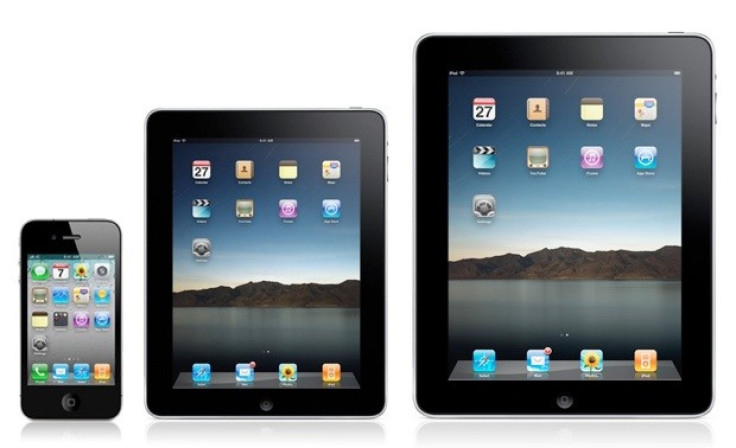Three Reasons Why Apple Must Release A Small iPad

As tablets become the rage in the mobile computing market, manufacturers are sprucing up their plans to gain a toehold in this segment. With turf wars hotting up, the IBTimes Tech Desk identifies three reasons as to why market leader Apple must release a small version of iPad, or Mini iPad as it is popularly known, to retain its hold over the mobile ecosystem.
1. Study Finds Tablet Sales Will Overtake Notebook PCs By 2017
Reports published in the Inquirer Technology state how research conducted by the NPD Group reveal that growing demand for handheld devices will propel tablet shipments ahead of notebook PCs by 2016. The study identifies tablets as the growth driver of the mobile computer segment.
The study forecasts that tablet shipments will rise from 121 million units in 2012 to 416 million units by 2017 and the overall mobile PC shipments to grow from 347 million units in 2012 to 809 million units by 2017.
Further, the study reinforces the fact that growth in tablet sales will impact the notebook segment, which is likely to witness a slow growth rate of 28 percent. As per the study, total notebook shipments will rise from 208 million in 2012 to 393 million units by 2017.
2. Competitors Carve A Niche In Low-Cost Devices In Short Time Span
The glamorous tablet segment is witnessing intense competition in the recent months thanks to a host of device launches, including Google's Nexus 7 and Microsoft's Surface. Though new entrants are yet to catch up with Apple in terms of sales and market share, they have definitely carved a niche in the mobile computing segment, making the low-cost tablets attractive in a short span of time. The impact is such that it has forced the leader, Apple, to revisit its product update plans and product launch strategies. Former CEO Steve Jobs was not particularly interested in the segment, as he believed that the 9.7-inch screen gave the best tablet experience.
A Bloomberg report cites how the proposed device will be a nightmare for competitors, including Kindle and Google, which already have devices with a seven-inch screen and a price tag of $199. Even though Apple's iPad 2 price tag was scaled down to $399, it is nowhere near the below-$200 tag of competition.
This necessitates introduction of a device between $200 and $250 to prevent rivals from eating at its market share.
3. To Reign Control Over the Mobile Ecosystem
A report published in the the Wall Street Journal in February 2012 states how lab tests were conducted for a small-screen iPad to score over Samsung's 5.3-inch Galaxy Note and Kindle's 7-inch Fire. This necessitated Apple, which has products and services across the mobile computing spectrum including tablets, smartphones, mobile gaming applications and iCloud, besides producing Macs, servers and operating systems, to launch a product in the on-demand segment to wrest control over the mobile ecosystem.
© Copyright IBTimes 2024. All rights reserved.











